Navigating the complexities of healthcare data management can be overwhelming. Just think of the last time you went to the doctor. Your care likely involved specialists needing access to your medical history, current medications, and treatment plans to provide quality care. Now, consider if those records didn’t match. If your doctor relied on outdated or incorrect information, it could ensure your treatment and avoid dangerous errors.
Reference data management helps healthcare organizations prevent these kinds of scenarios by improving the accuracy and consistency of data across systems. This guide will cover how reference data management works and why it’s crucial for healthcare data management. In particular, we’ll explore how this process empowers healthcare organizations to improve patient outcomes and operational efficiency through effective data management solutions.
Azulity’s healthcare master data management services can help your organization achieve these objectives. By creating a comprehensive framework for managing reference data, our solution improves data accuracy and ensures your organization has reliable information to work with.
What Is Reference Data Management?


Reference data management is about the codes and descriptions used to classify and categorize data. It helps businesses identify information about all sorts of business activities. In healthcare, for example, reference data management can help organize information about financial transactions, locations, forms of measurement, and inventories. Reference data is sometimes confused with master data, a more generic term for data that helps describe and organize business information. Where master data covers a broad range of organizational data, reference data is more specialized.
Healthcare can have hundreds of thousands of data files, and managing this information effectively requires organizing and categorizing it so that nothing gets lost. Proper organization ensures disparate systems and users can easily understand and access data. Reference data management (RDM) helps organize healthcare data to be correctly classified and categorized for practical use.
How Reference Data Management Works
RDM provides governance architecture to centralize and manage any reference data. The data itself is stored in a single RDM hub or database repository because most data stewards, architects, and reference data managers believe an RDM solution should be the single and trusted source for the creation and company-wide distribution of reference data.
Importance of Reference Data Management In Healthcare


Reference data management is integral to enterprise systems, such as healthcare providers. It impacts data quality, readability, and risk reduction.
Establishes Data Consistency
As the base layer of information about your company, reference data enables a uniform enterprise-wide understanding for designing standard metrics. This means consistently categorizing diagnoses, procedures, treatments, and more in healthcare. Doing so helps everyone, from IT to clinicians, understand the data similarly.
Enables Data Governance
Creating controls for data access facilitates accountability by key stakeholders and end-users. This promotes trust in the underlying data, vital for patient safety and organizational performance in healthcare, where data discrepancies can have costly clinical and financial implications.
Source of Truth
The use of a consistent reference data system contributes to a trusted single source of data enterprise-wide. In healthcare, a facility can leverage a standard dataset to improve operations, enhance reporting capabilities, and boost quality outcomes.
Improved Data-Informed Decision-Making
Creating a uniform source of truth relied upon by end-users throughout the organization enables the faster implementation of data insights. In healthcare, this can mean the difference between life and death as reference data management reduces the time it takes for data to be understood and actionable; clinical and operational decision-making can occur without delay.
Azulity specializes in healthcare master data management, bringing proven expertise in implementing healthcare data solutions and credentialing across the US. Our comprehensive platform ensures consistent patient, provider, location, and claims data synchronization across all systems and departments. Key features include healthcare MDM, provider MDM, reference data management, credentialing, and provider enrollment.
We serve healthcare technology leaders – from CIOs and CDOs to VPs of data platforms and credentialing – helping them eliminate the costly problems of fragmented data systems. Book a call to learn more about our healthcare master data management services today!
Related Reading
- Data Quality Management in Healthcare
- How to Secure Patient Data
- Master Data Management Solutions
- Patient Data Management System
10 Best Reference Data Management Software for Healthcare
1. Azulity: The Go-To for Healthcare Master Data Management
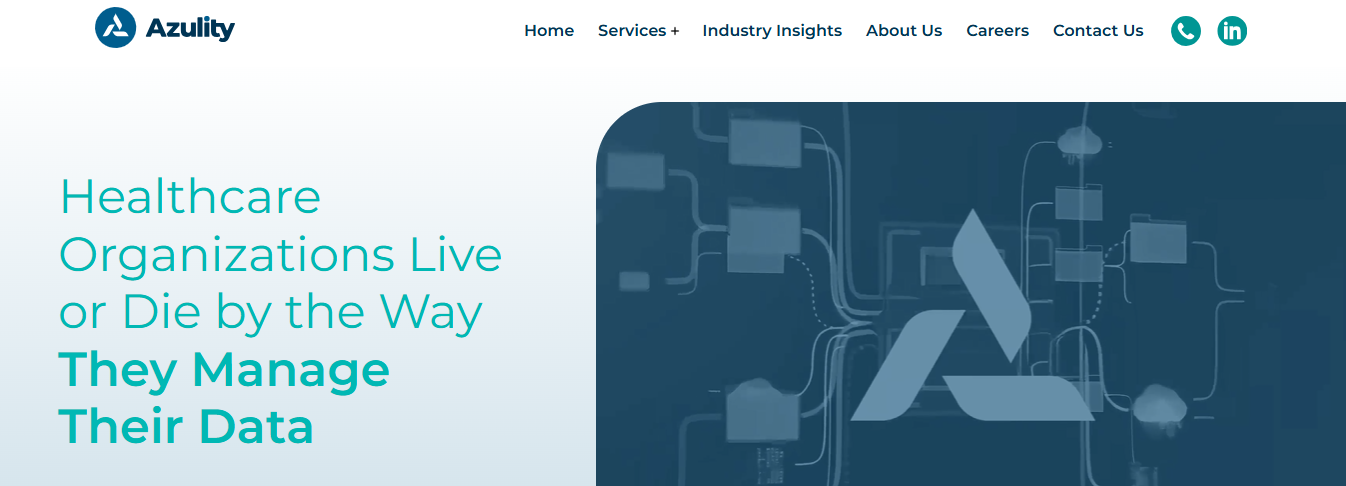

Azulity focuses on healthcare master data management, providing deep expertise in deploying healthcare data solutions and credentialing across the United States. Their comprehensive platform guarantees consistent patient, provider, location, and claims data synchronization across all systems and departments.
Key features
These include healthcare MDM, provider MDM, reference data management, credentialing, and provider enrollment. Azulity serves healthcare technology leaders—from CIOs and CDOs to VPs of data platforms and credentialing—helping them eliminate the costly problems of fragmented data systems.
2. Ataccama Reference Data Management: The User-Friendly Reference Data Management Tool
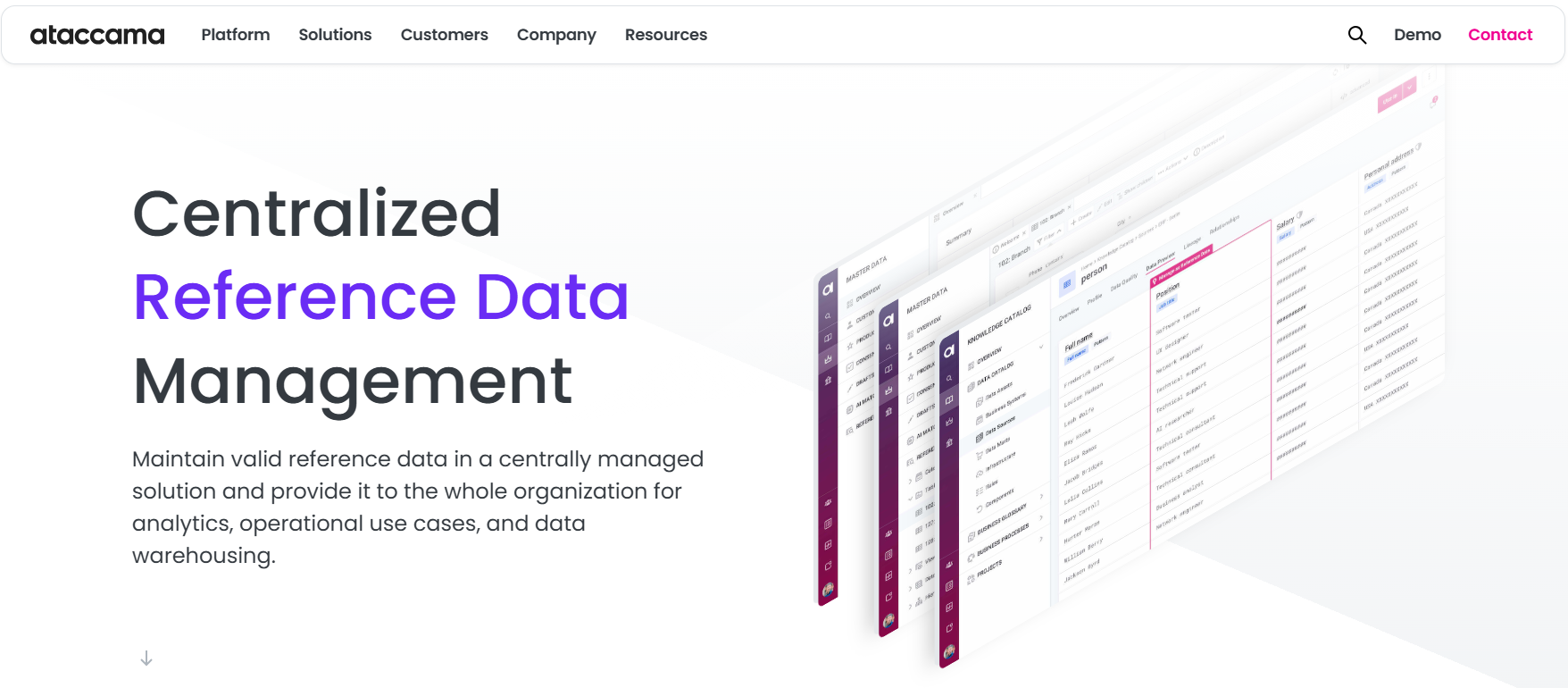
Ataccama Reference Data Management is a feature-rich web app for managing your reference data. It lets you keep valid reference data in a centralized solution while providing it to systems and users.
Key feature
Including data quality management, error-free authoring and editing, and data integration and warehousing.
3. IBI (Information Builders): The Reference Data Management Tool for Data Governance
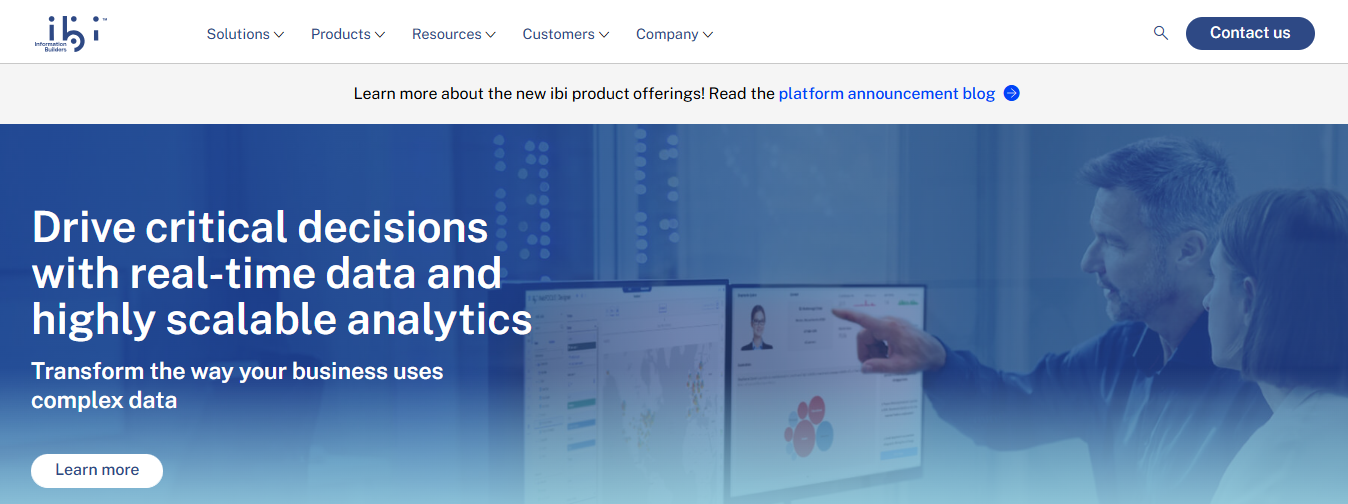
Information Builders is a reference data management tool for data integration, quality, management, and governance. It offers flexible reference data management across the business. It empowers you to be successful data stewards by implementing centralized data collaboration, data lineage support, and a codified dictionary of acceptable words.
Key features
Data quality management and data lineage support.
4. Epimorphics Reference Data Manager: The Reference Data Management Platform

The Epimorphics Reference Data Manager platform assists your business in managing reference data, such as code lists or managed sets of identifiers. It provides tools for managing a reference term hierarchy, core reference data, code lists, and vocabularies. The platform offers some extra services, such as versioning of identifiers, search and discovery, validation, and general namespace delegation.
Key features
Data distribution via APIs, file export, user management and security, and data governance workflows.
5. Semarchy xDM: The All-in-One Reference Data Management Solution
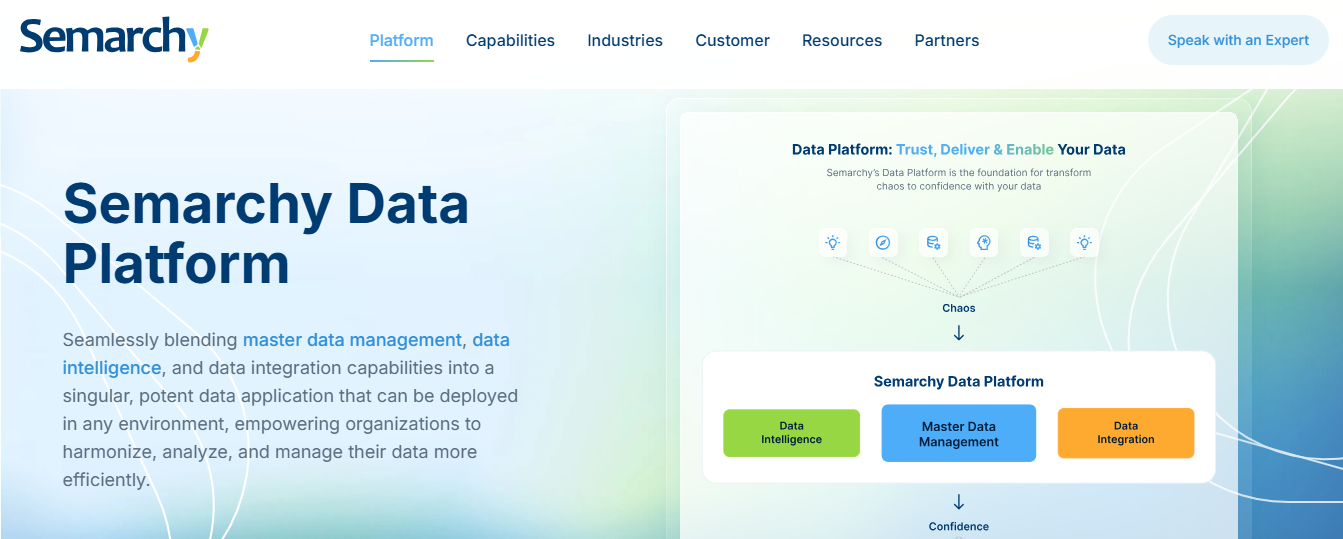

Semarchy xDM is the only platform for master data management (MDM), reference data management (RDM), application data management (ADM), data quality, and data governance. Its easy-to-use interface lets teams of any size collaborate to create, enrich, standardize, and validate data in workflows.
Key features
Centralized repository, web-based user interface, easy data integration from multiple sources and platforms.
6. Informatica Reference 360: The Centralized Reference Data Management Solution
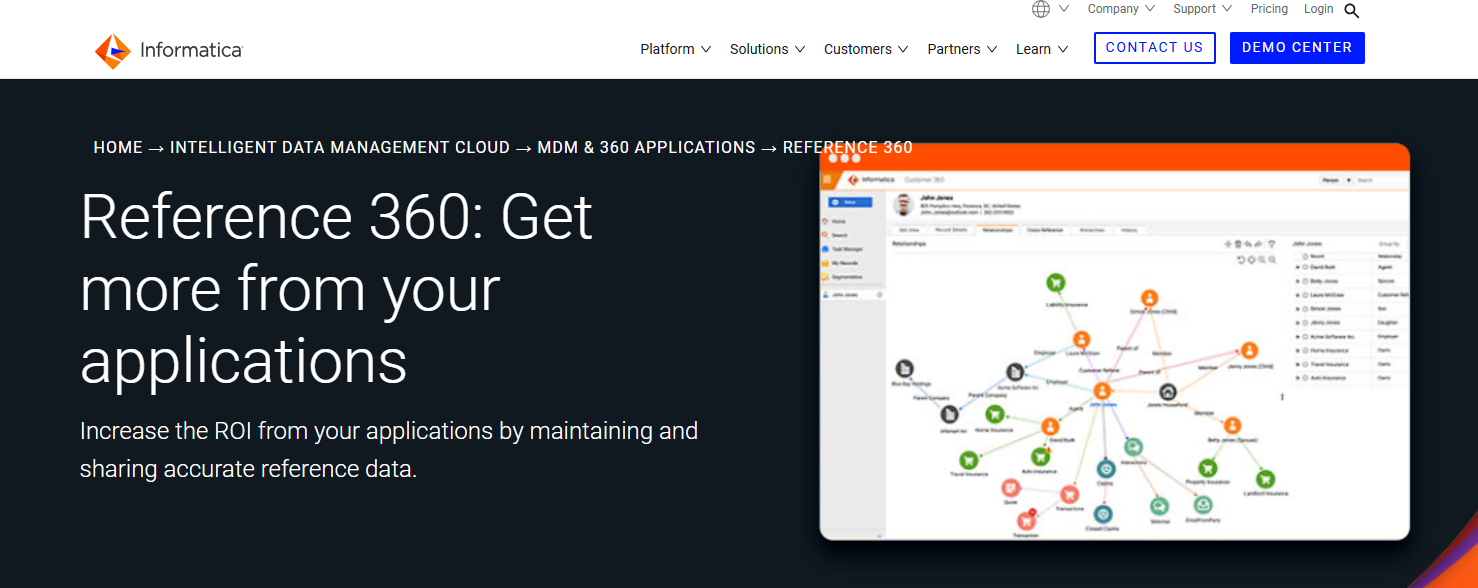

Informatica Reference 360 is a software solution that Informatica offers for managing reference data. The solution helps organizations manage and control their reference data centrally and consistently across different systems and applications.
Key features
Allows companies to integrate reference data from many sources and platforms, allowing users to define and maintain data models and governance workflows.
7. Profisee: The Comprehensive Reference Data Management Tool
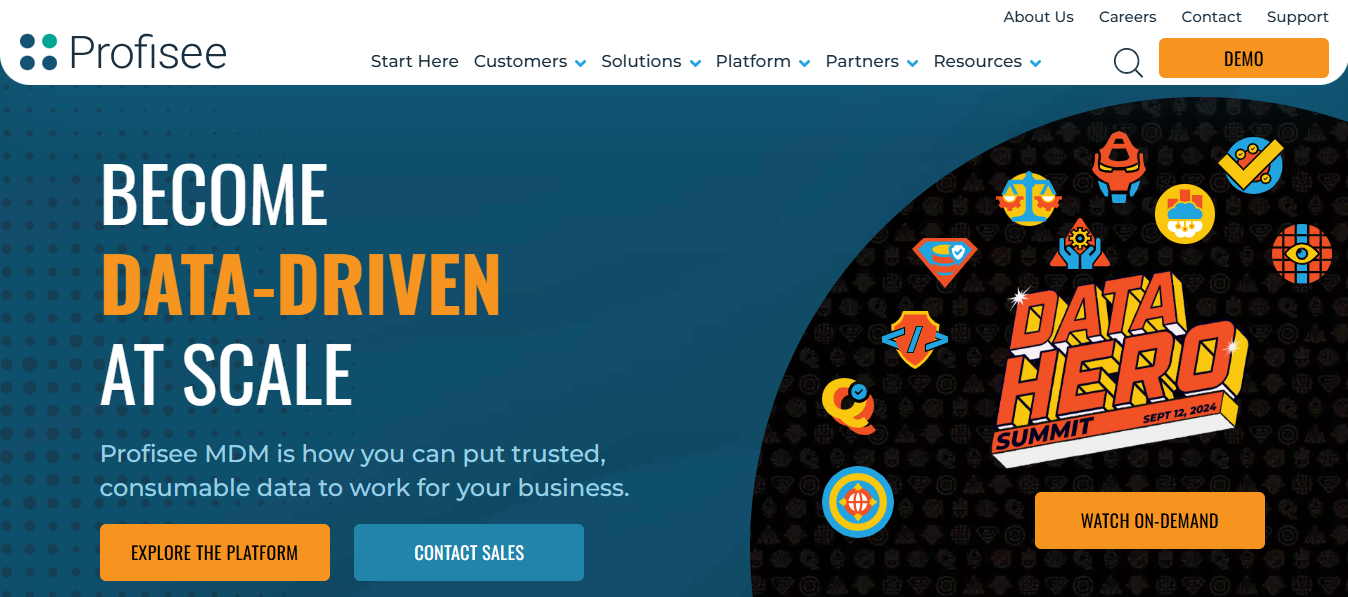
Profisee is a web-based platform and one of many reference data management tools that offer a comprehensive solution for producing, managing, and regulating master data and reference data across many systems, applications, and business units. It allows businesses to construct an accurate, consistent, and up-to-date centralized repository of master data and tools for data integration, quality, governance, and analytics.
Key features
Tools for data validation, governance workflows, and accessible data integration from multiple sources and platforms.
8. Dataedo: The On-Premises Reference Data Management Tool
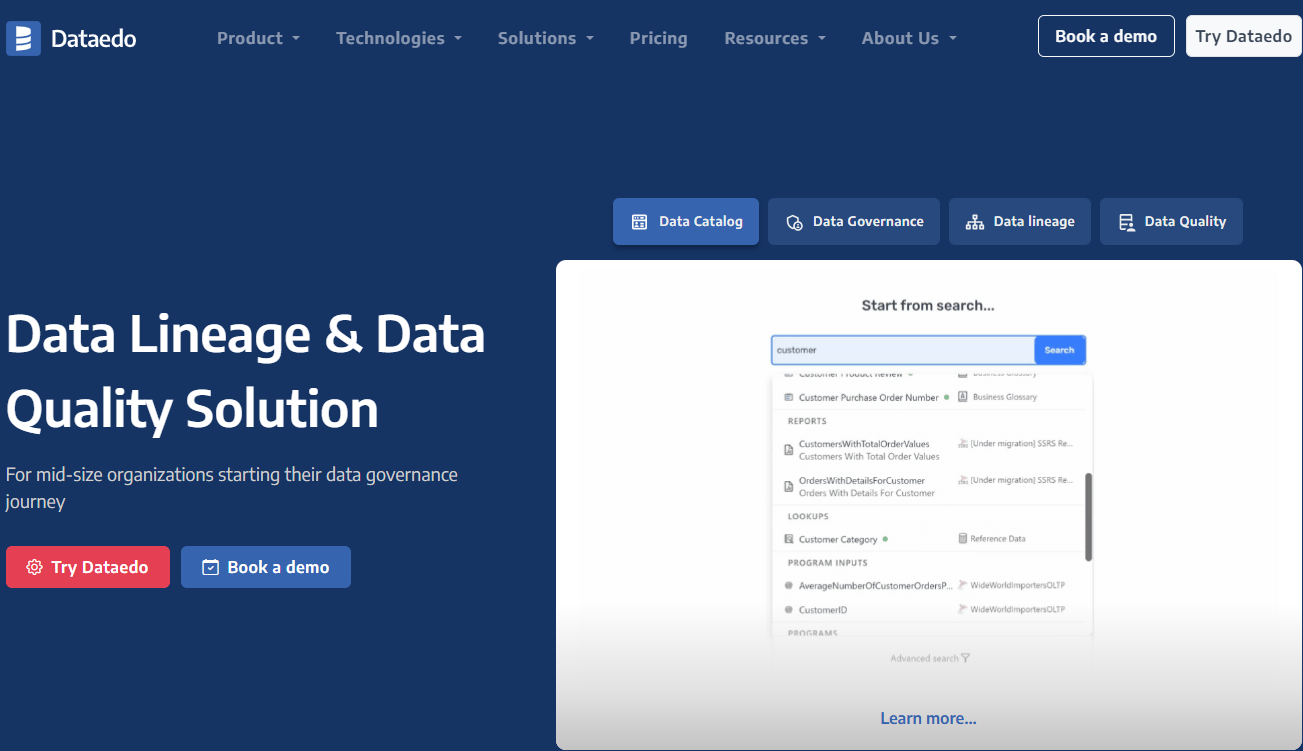

Dataedo is an on-premises data catalog and metadata management tool. It allows you to classify, record, and comprehend your data. It also allows you to maintain all of your reference data in one place for easy access, distribution, and updating across several data sources. Key features include BI reporting (Business Intelligence) and data lineage support.
9. Informatica MDM Cloud: The Cloud-Based Master Data Management Solution
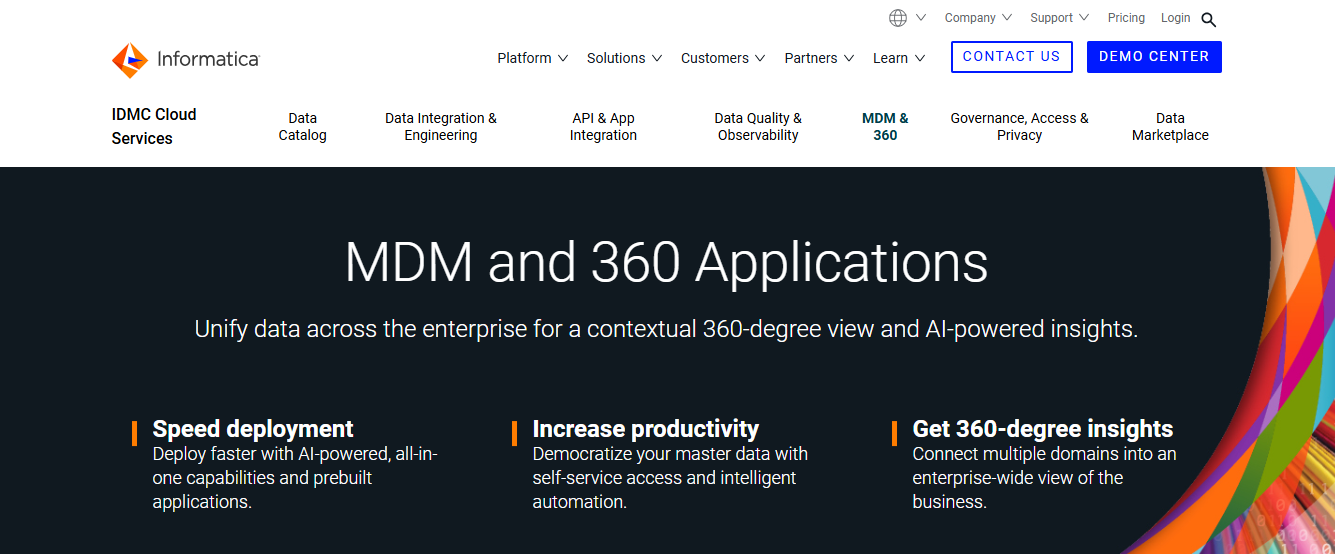
The Informatica MDM Cloud provides a central place to store and manage master data. It lets organizations keep a single version of the truth for their master data, improve data quality and consistency, and reduce data duplication.
Key features
Data governance workflows, modeling, warehousing, and accessible data integration from multiple sources and platforms.
10. IBM InfoSphere MDM Reference Data Management Hub: The Reference Data Management Hub
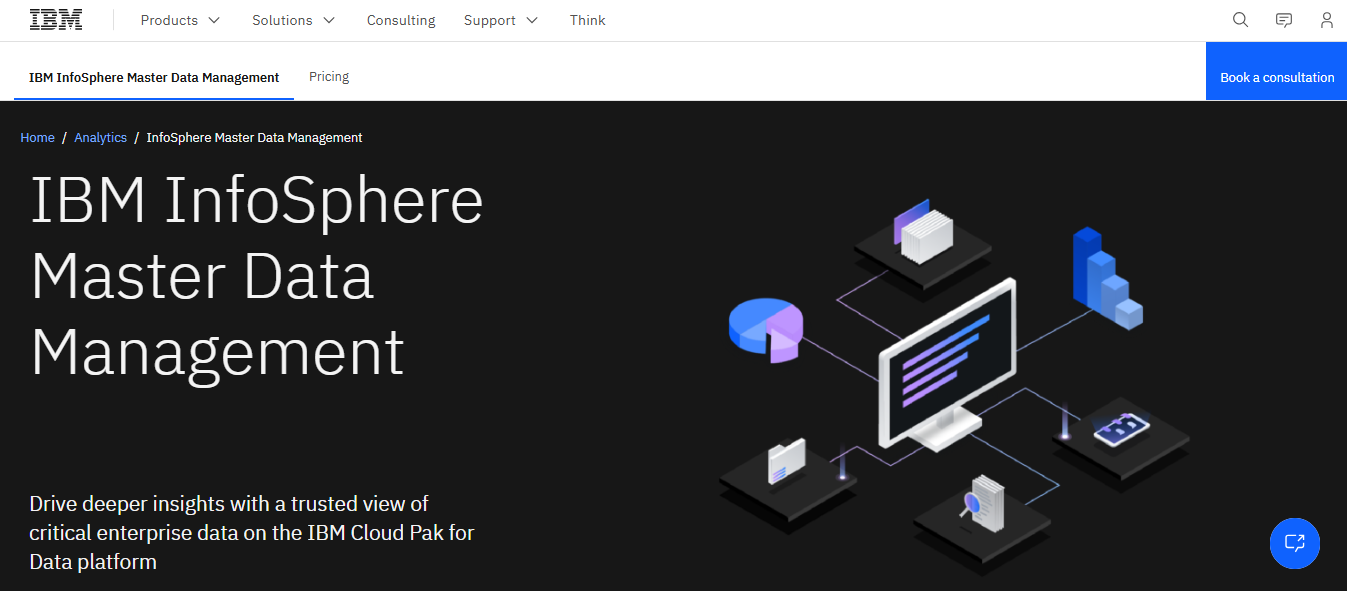

IBM InfoSphere MDM Reference Data Management Hub is one of the best tools for centrally managing and distributing reference data across an organization. It allows you to centralize stewardship, auditing, and security for reference data management and dissemination throughout the company to process and regulate reference data.
Key features
Centralized repository, data lineage support, data governance workflows.
Use Case of Reference Data Management In Healthcare


Standardization of Medical Terminology
Reference data management helps ensure consistency across systems regarding medical terms, codes, and classifications for procedures, diagnoses, and medications. For example, the ICD (International Classification of Diseases) codes are standardized reference data used globally for medical diagnoses. In the U.S., ICD codes are used for claims processing and billing in insurance and government health programs. When a hospital system implements a new version of the ICD codes, such as ICD-11, it must ensure smooth integration and mapping of codes from the previous version (ICD-10) to avoid reporting and billing accuracy disruptions.
Interoperability Across EHR Systems
Managing reference data allows Electronic Health Records (EHR) systems to communicate effectively using standardized data formats and definitions. The HL7 (Health Level 7) standard, which facilitates data exchange between EHR systems, relies on a well-managed set of reference data. When a patient’s data is transferred from one hospital’s EHR system to another’s, HL7-compatible reference data helps ensure that diagnoses, treatments, and medications are accurately understood across platforms, regardless of the vendor.
Efficient Patient Data Exchange Across Facilities
Reference data management streamlines patient information exchange among facilities to provide continuous care. In the U.K.’s National Health Service (NHS), patient data must be accessible across hospitals, general practitioners, and specialists. Standardized reference data like SNOMED CT (Systematized Nomenclature of Medicine – Clinical Terms) for clinical terms and conditions ensures consistent understanding and reporting. Hence, the data is interpretable no matter where the patient seeks treatment within the NHS.
Clinical Trial Data Standardization
Reference data management ensures accurate, comparable data in clinical trials for practical data analysis and regulatory approval. Pharmaceutical companies conducting multi-site trials often use CDISC (Clinical Data Interchange Standards Consortium) standards, which include reference data for drug names, adverse events, and patient demographics. This enables consistency in data reporting across trial sites, facilitating accurate data analysis and submissions to regulatory bodies like the FDA.
Efficient Insurance Claims Processing and Reimbursement
Reference data management ensures correct billing, claims processing, and reimbursement by insurance providers. When a U.S. hospital bills for services rendered, it uses CPT (Current Procedural Terminology) codes and reference data for services and procedures. Insurance claims could be delayed or denied if the codes are outdated or inaccurately mapped. Effective reference data management helps avoid these issues, ensuring that claims are processed promptly and accurately.
Data Quality in Public Health Reporting and Analytics
Reference data management ensures consistent and reliable data for reporting to public health authorities and population health analytics. During the COVID-19 pandemic, reference data was essential for accurately reporting infection rates, patient demographics, and outcomes across healthcare providers. Systems using different codes for COVID-19 symptoms and diagnoses could lead to inconsistent data. By standardizing reference data across healthcare providers, public health organizations could more accurately track and analyze data to guide public health decisions.
Operational Efficiency in Hospital Supply Chain Management
Reference data management improves inventory and procurement processes by managing reference data for medical supplies and pharmaceuticals. Hospitals use standardized reference data, like the GS1 barcode system, to track these items. Standardization enhances inventory management and procurement efficiency, allowing accurate tracking and identification of items, reducing stockouts, and ensuring that items are correctly billed and documented.
Related Reading
- Healthcare Provider Data Management
- MDM Implementation
- Healthcare Data Integration
- Healthcare IT Consultants
Book a Call to Learn More About Our Healthcare Master Data Management Services
Reference Data Management is a subset of data management that deals specifically with reference data, the static data that helps categorize and classify data for more efficient processing and analysis. In healthcare, reference data includes information about medical codes and terminology, such as International Classification of Diseases (ICD) codes, Current Procedural Terminology (CPT) codes, and other code sets, as well as information about healthcare providers, such as National Provider Identifier (NPI) records. RDM helps organizations ensure this data is accurate, up-to-date, and consistent across all systems and departments.
Why Is Reference Data Management Important in Healthcare?
Reference data management is critical for healthcare organizations to improve operations and enhance patient care. For one, managing healthcare reference data helps streamline revenue cycle processes, especially claims management. The more accurate and consistent reference data is, the fewer errors there will be when submitting claims and the faster they can be processed. This leads to fewer claim denials and reworks, reducing costs and improving cash flow for healthcare organizations. Furthermore, effective reference data management supports regulatory compliance and helps improve the quality of care by enabling better clinical decision-making.
Azulity specializes in healthcare master data management, bringing proven expertise in implementing healthcare data solutions and credentialing across the US. Our comprehensive platform ensures consistent patient, provider, location, and claims data synchronization across all systems and departments. Key features include healthcare MDM, provider MDM, reference data management, credentialing, and provider enrollment.
We serve healthcare technology leaders – from CIOs and CDOs to VPs of data platforms and credentialing – helping them eliminate the costly problems of fragmented data systems. Book a call to learn more about our healthcare master data management services today!
